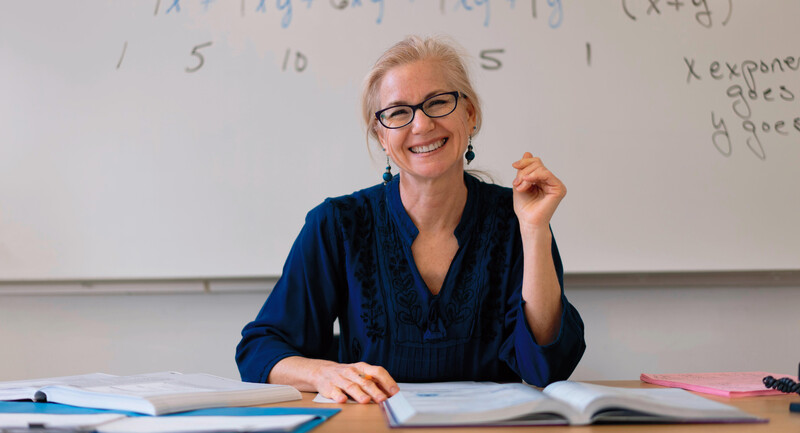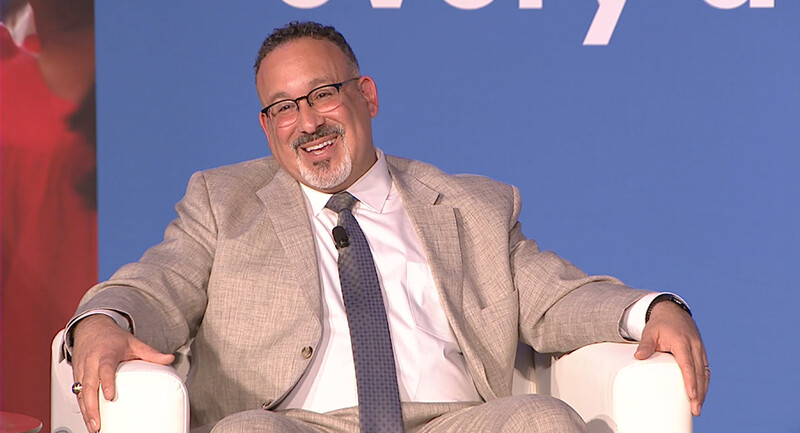Florida’s now infamous “Don’t Say Gay” law, which restricts the ability for public school teachers in the state to address LGBTQ topics with students from kindergarten through 3rd grade, has put questions about inclusive teaching practices and curriculum back in the national spotlight. And although the bill has provoked condemnation from organizations such as the American Academy of Pediatrics and The Trevor Project, it isn’t exactly unique—in fact, 15 other states are considering similar legislation.
For teachers who may face potential new instructional restrictions, the legislation has fueled a wave of anxiety. Creating an environment that is safe and affirming for all students—including those who are LGBTQ or have LGBTQ family—takes intentional effort, and more educators are now coming forward with questions about how to do this in the face of looming state legislation.
“We are meeting with at least one school or library group every week, if not twice a week, to have these conversations, which is a huge uptick compared to this time last year,” says Vanessa Ford, an advocate and education consultant who works with teachers to support and affirm LGBTQ students.
Florida’s LGBTQ content restriction is the first of this wave of policies to be signed into law, and it isn’t yet clear how many other state legislatures will follow suit, or what scope those laws may take. According to advocates, protecting LGBTQ students is an imperative whether or not teachers and administrators face state-imposed restrictions, but the role teachers can play in affirming their students may look different depending on local laws.
Determining Where Schools Stand
If educators want to make their schools safer for LGBTQ students, they need to come together to understand how content restrictions could affect their practice. Coordinated political campaigns to block specific content in the classroom or even ban books, can result in widespread anxiety and confusion among teachers—something Florida educators have already reported.
The best antidote is direct communication with school administrators to better understand what state policies actually mean for teachers, says Bex Mui, an equity consultant and director of the Stonewall National Education Project.
“I encourage educators in states where these restrictions are happening to talk with their administration about what it means for them,” she says. “Without understanding what’s being asked . . . what often happens is that there’s fear and uncertainty and educators will be more likely to not talk about LGBTQ people or even might be afraid of interrupting anti-LGBTQ comments in the classroom.”
Whether educators are concerned about the effect of anti-LGBTQ legislation in their own state, or simply galvanized by headlines about it elsewhere, they can draw on resources to better assess how their schools are supporting LGBTQ students across curriculum, instructional strategies, and school culture. The CDC provides a self-assessment tool for LGBTQ inclusivity in schools and GLSEN, a national network of LGBTQ advocates and educators, conducts annual school climate surveys. Gender Spectrum, another organization with a focus on inclusivity for gender expansive students, also provides guidelines for teachers and administrators on cultivating an affirming learning environment.
A restrictive law may prevent teachers from addressing one or more areas highlighted in these forms of assessment (in Florida’s case, the curriculum for young learners), but using these resources can help schools determine where they can make progress without running into state-imposed barriers.
They can also invest in professional development to more directly equip teachers with supportive practices. Welcoming Schools, a bias-based bullying prevention program with the Human Rights Campaign, offers LGBTQ-specific professional learning. Frequently, administrators and teachers seek out these services to meet the needs of students who they currently teach, says Cheryl Greene, the program’s director.
“It’s the job of an educator to ensure that all families, and all students, are valued and feel a sense of belonging,” says Greene.
As Greene points out, creating a safe space for LGBTQ students is a comprehensive process. In a state such as Florida, professional learning won’t negate legislated content restrictions, but it can still help educators, for example, interrupt anti-LGBTQ comments in the classroom, expand students’ understanding of what makes a family, or accept diverse expressions of gender (say, a boy who frequently comes to class wearing pink).
“It’s the lens by which you do all of your work to be inclusive, and that’s not something anybody can take away from you,” Greene says.
Shaping School Culture
To contribute to a safer school environment generally, Ford uses an equity framework with four key directives—educate, affirm, include, and interrupt. These action items include policies such as revising dress codes, respecting students’ names and pronouns, and allowing students to use the bathrooms that correspond to their gender.
Some of these measures are more politicized than others, but working together with administrators, teachers can select interventions that are within reach. This kind of training is essential for all adults who work with students, including bus drivers, janitors, and cafeteria staff, Ford says. Along with Mui, Ford outlined these practices in greater depth in an ASCD webinar, Supporting Trans and Gender-Nonconforming Students with Pride, from 2019.
“It’s really important for educators to create safe, supportive environments,” says Mui. “Even outside of being able to specifically teach LGBTQ-positive representations, we can still do a lot to [cultivate] a safe classroom.”
Engaging on the issue of LGBTQ inclusivity also requires understanding the intersectionality of barriers facing both students and educators alike. State policies restricting LGBTQ content in the classroom don’t happen in a vacuum, Ford notes, and many states across the country have also sought to restrict content related to race and history.
Expanding the Curriculum
Depending on their state, not every teacher will be able to infuse their instruction with more inclusive literature, but many can. Even in Florida, the “Don’t Say Gay” law doesn’t extend beyond 3rd grade, turning more attention on how educators devise their reading lists for older students.
“The more lesson plans and resources that teachers can have in their toolbox, the more comfortable they’re going to be ensuring that they can broach these topics and support all of the kids in their classroom,” Ford says.
Like other equity advocates, Ford believes it’s essential for students to have access to what children’s literacy expert Rudine Sims Bishop calls “windows” and “mirrors” in the curriculum—that is, content that exposes them to different perspectives as well as content that reflects their own experiences. And that’s critical for all students, not just those who are LGBTQ. "Everybody has a gender identity,” Ford notes.
HRC’s Welcoming Schools Program offers comprehensive book lists covering LGBTQ themes for students at various grade levels. The program also outlines lesson plans for young learners using books including, for example, the early life story of transgender activist Jazz Jennings and a tale of two male penguins raising a chick together.
The more lesson plans and resources that teachers can have in their toolbox, the more comfortable they’re going to be ensuring that they can broach these topics and support all of the kids in their classroom.
Vanessa Ford
A former elementary school teacher, Mui reiterated the benefits of helping young learners explore diversity in all its facets. “Start early,” she says. “I know the firsthand value of beginning this work with young children to minimize the unlearning that they have to do.”
For older students, GLSEN also offers LGBTQ history flash cards; and the Stonewall Book Awards, sponsored by the American Library Association, provides a longer list of inclusive texts.
Outside campaigns to revise what students can learn in the classroom is a complex challenge for teachers. The best response, many leaders in LGBTQ education argue, is a unified one. Working alongside school and district leaders, and in partnership with advocacy organizations, teachers can find new ways to uplift all students, even amid barriers created by new legislation.
“In a place where there’s a lot of negative attention on what you’re already teaching . . . I always say, as a teacher, as an administrator, as a school staff person, you do not need to go it alone if you’re looking to make change,” says Ford.





